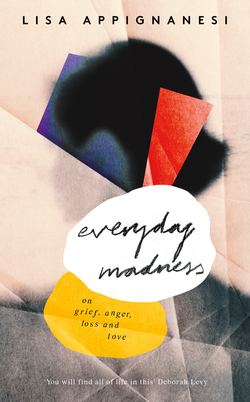Читать книгу Everyday Madness: On Grief, Anger, Loss and Love - Lisa Appignanesi - Страница 11
2
ОглавлениеDEATH HAD COME suddenly for John. It wasn’t expected. Not by any of us. Even though he was undergoing an extreme new treatment, the details of which I can’t seem to rehearse. Even though he had been in treatment for the first time just a little over two years before, then again in that last year. Twice. We had carried on laughing and arguing and walking and watching too many thrillers on the telly, and life didn’t feel as if it were ebbing in any more definitive a way than usual. There was plenty of black humour and blunt speaking about mortality, but somehow these were jokes and quite unrelated to the real. On top of it all, he looked fit. Like himself.
So when the real came, it was utterly unexpected. A shock – like a wall toppling, knocking you down into rubble. Things smelt strange there, rot and ash. When you raised your head, skewed hallucinative vistas opened.
Part of the shock resided in the sheer corporeality of death. Nothing virtual there. The body turned to unresponding stone, massive, unforgiving, as it lay there on the raised bed in the intensive care unit. That unmoving body was more intractable than mere absence. It was stubbornly indomitable. It couldn’t be wooed, or bargained with, or budged. Certainly not by me. Not over months of remembering. It was just there. A blunt fact. Somehow it was also a reprimand: how had we let him die?
We tend to think of dead bodies as abject in their lifelessness. I should have felt sorrow and pity. I had earlier while he was still breathing, but now – perhaps it was fear, or panic, or guilt, or all of them at once – his sheer stony immovability carried a visceral threat. Was it the latent violence of so much shiny steel and the high-tech tools that brought murder to my mind?
The evening before, I had had a loud panicking exchange with a bullying emergency-room doctor, who wanted to operate instantly: he just wouldn’t listen when I said anyone from the cancer clinic would tell him that, given John’s non-existent immune system, he couldn’t be operated on. I was quietened by another doctor, and in the end, when the detail on John’s file was read, no operation took place.
Had I been wrong? Was I complicit in the death? And did that mean, in the too many interpretations that accompany death, just as they accompany love, that I somehow wanted it?
He had lain there for a whole night before turning into stone. A night that stretched into infinity and gave way too soon, while the machines around him blipped and danced, with waves and reels of shining numbers. He still inhabited his body. He might not have been conscious, but we felt he was holding on beneath the closed eyes. Surely they would open again. His face wore a peaceful, benign expression, a counter-statement to the noise around him in that machine-crowded space.
When the children and their partners arrived, we all felt he could sense us, hear us. We stroked his forehead and, clustered round the bed, sang his favourites – Bob Dylan, Leonard Cohen, the Beatles, campfire songs. As if he were the fire. We talked to him one by one, too. I don’t know what I said. I know there were tears – from the boys in particular. They were men returned to childhood by the death of a father, for one, a mentor, for the other. We willed him awake and simultaneously wanted to ease whatever passage there might be, if there was to be one. We hugged each other and him. No one quite knew who was holding whom up.
Around eight in the morning, the nurses had their rota shift and urged us all out for breakfast. We went obediently, sipped cappuccinos or double espressos with the office crowd at a Tottenham Court Road café. We talked inconsequentially. Or maybe it wasn’t inconsequential. I don’t really know.
We got back to the hospital in no time at all. But the room was uncannily quiet. The dancing screens had gone dark. A nurse I didn’t recognize addressed me with a look that needed no words. He had used the opportunity. While we weren’t looking, he had slipped away, like a dying animal seeking the shelter of the woods. Or perhaps they had just unplugged the machines that were functioning as his kidneys and other organs. Switched off the life-support. No life can be lived without support.
Now there was corporeality alone. A cooling body inelastic to the touch. Stony smooth. Both smaller and bigger than life, and accruing a spectral charge the longer I looked at it and held our daughter – though she might well have been holding me.
After that, time imploded. It was impossible to mark the sequence of days, of sleep and waking. It wasn’t that, like W. H. Auden, I called out for the clocks to stop. They did so of their own volition. They stopped keeping time, moving the minutes and the hours, the days and eventually the months. Without their structure to cling to – a set of moorings so internalized we forget their existence – everything was cast adrift. There was no more continuity in my life, or rather in my self.1
